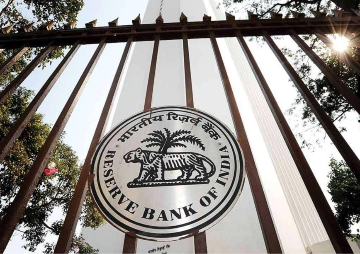In his opening remarks Mr. Sunjoy Joshi, ORF Distinguished Fellow, said that pace of adoption & innovation was critical for mainstreaming climate friendly technologies

A roundtable was held on April 20, 2010, Tuesday, on “Goal 2020: Identifying issues, options, opportunities and frameworks towards demand side mainstreaming of climate friendly technologies through Technology Diffusion Centers”, at the ORF New Delhi campus. The roundtable saw participation from trade commissions, multilateral investors and corporates.
This roundtable was convened by the ORF in association with the India Carbon Outlook, an independent information marketplace tracking actions related to the carbon economy as well as their impact, and the cKinetics, a venture accelerator catalyzing rapid adoption of low carbon sustainable growth practices in emerging economies through technology transfer, capital access and adaptation interventions.
The roundtable was held to identify steps that can be taken in the coming years so as to be able to achieve the impact of technology/application available to be transferred for mitigation and adaptation in India by 2020. The roundtable had the four sessions. The first and the second session were based on the discussion on climate friendly prototypes and discussion on global experiences. The third session was divided into two parallel working group discussions- Technology Transfer framework, Designing Technology Diffusion and Innovation Hub Ecosystem and Prototype Rollouts and Mass Adoption.
In his opening remarks Mr. Sunjoy Joshi, ORF Distinguished Fellow, said that pace of adoption & innovation was critical for mainstreaming climate friendly technologies and identified solar thermal technology as the most promising one for mass adoption.
The first session started with Mr. Upendra Bhatt, Managing Director, cKinetics, laying out the goals for the roundtable: facilitate technology diffusion and technology transfer; document best practices; identify prototype technology for next two years; come up with concrete suggestions. He also presented highlights from the pre-meeting questionnaire which essentially represented contrarian views on clean technology transfer.
In the second session, Mr. V. Raghuraman, Principal Advisor, Jaguar Overseas Ltd., stressed upon the need to adopt Electric Power Research Institute model in diffusing renewable technology for India. He was of the view that LED lighting technology is one of the means to provide lighting to 400 million inhabitants having no electricity. He also said that for mass adoption the technology should be user friendly. Mr. Samir Saran, ORF Vice President, said that energy efficiency is “the low hanging fruit” in achieving carbon intensity targets. Mr. Poul Jensen, Head, European Business and Technology Centre (EBTC) in India, said that India had the potential to make clean technologies mature. He also shared the EBTC experience of being a facilitator for EU clean technology. Mr. Takeshi Yoshida, chief representatives, NEDO, shared Japanese experiences in the field of energy efficiency and mentioned the “Top Runner Programme” mandated by the Japanese government through which all equipment manufacturers in Japan have to attain benchmark efficiency of the most energy efficient manufacturer. Ms. Lydia Powell, Senior Fellow, ORF, identified property rights and persistence of unorganized sector as some of the problems for mass adoption of technologies. Dr. Ramesh Jalan, Head, Solution Exchange stressed upon the necessity to improve the service support system for mass adoption renewable technologies. Mr. Kunal Upadhyay from IIM Ahemdabad conveyed the view that levelised cost of electricity was critical in determining economic viability of distributed generation. Dr. J. V. Rao, Director, NITRA, said that there was no representative baseline data at the SMEs level which was required for implementing carbon intensity reduction programmes. Prof. Rakesh Basant, IIM Ahemdabad, was of the view that choice of prototype technology was not independent choice and that inventory of prototype technologies must be created to meet diverse needs. Mr. Vishal Thapa, Director, ICF India, said that as India was extremely segmented, we should not pick winners in technology and that we must create a portfolio of solutions.
The key point that emerged from the deliberations of the parallel working groups in the afternoon session was that cost, user friendliness and durability were critical for both technology transfer from developed countries and for mass adoption of those technologies in India.
The report was prepared by Akhilesh Sati, Junior Fellow at the ORF.a
The views expressed above belong to the author(s). ORF research and analyses now available on Telegram! Click here to access our curated content — blogs, longforms and interviews.




 PREV
PREV

